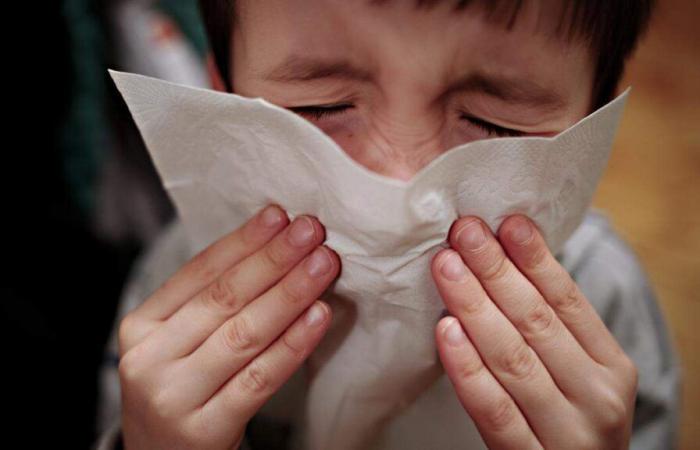In recent weeks, Belgium has experienced an increase in covid cases, particularly marked by a rebound in certain sub-variants of the virus. Health authorities initially showed concern about the increase in the number of positive cases in several regions, even if the pressure on hospitals increased only very slightly. Experts attributed this situation to the start of the school year and the resumption of indoor activities, which promote the circulation of the virus.
In mid-October, however, the Sciensano Public Health Institute confirmed that after several weeks of increase, the number of covid cases had started to decline again. Two indicators served as a basis for establishing this observation: the analysis of wastewater and the data collected by the hundred “watchdog” general practitioners who take smears to determine which viruses are circulating within the population. Initially, tests carried out on wastewater indicated an upward trend in the virus as well as a high rate of circulation. But all the other markers were green.
The virus, however, is in ambush. Symptoms reported by patients include: fever, fatigue, sore throat, moderate cough, body aches, loss of taste and smell.
Vigilance is required
Vigilance remains necessary in all cases, particularly for the most vulnerable groups such as the elderly and the immunocompromised. Vaccination campaigns continue, in particular for boosters, in order to limit serious forms of the disease. It is recommended to wash your hands regularly and ventilate enclosed spaces. The mask remains a valuable aid in public spaces.
This shows once again that we must not take covid lightly.
Marc Van Ranst
virgologue
A PCR test may be recommended for people at risk of developing a severe form of covid, for example, to initiate antiviral treatment. The doctor may also consider testing all members of a family after a problematic contact.
We also know that a new strain of covid called XEC has been detected in around thirty countries, including Belgium, Luxembourg, France, Denmark, the Netherlands, the United Kingdom and the United States. According to experts, its properties are not very different from those of the variants that previously circulated. But this strain has the capacity to be able to infect more people.
XEC could therefore quickly surpass the hyper-infectious sub-variant, KP.3.1.1, which is currently the most widespread. Experts believe that existing covid vaccines should prove effective in combating it.
Increased risk of type 2 diabetes
In recent days, Flemish virologist Marc Van Ranst has echoed an American study highlighting an increased risk of type 2 diabetes in children and adolescents after infection with the coronavirus. In hospitalized children, the risk is three times higher than in those admitted for another infection. “This shows once again that we should not take covid lightly,” said the scientist, emphasizing the rarity so far of type 2 diabetes in children.
Looking at the current level, we are halfway between the baseline and the high winter peaks we experienced last winter.
Steven Van Gucht
virologue
So, where exactly are we in terms of pandemic risk? The fluctuation of the curves does not currently allow precise conclusions to be drawn.
Last September, virologist Steven Van Gucht said he was worried. “If we look at the current level, we are halfway between the baseline and the high winter peaks that we experienced last winter,” he explained. However, he did not expect an exceptional wave. “The curve should probably stabilize in a few weeks.” This turned out to be correct, as the figures from mid-October indicate.
However, there is a major unknown: the arrival of the flu. “What we don’t want,” added Steven Van Gucht, “is for certain waves to overlap. For example, a big flu wave and a big coronavirus wave at the same time. This would represent a double burden. So let’s hope that the next wave of coronavirus is still a few months away.”
Pharmacists will continue to vaccinate against the flu
In the meantime, the Belgian authorities recommend also getting vaccinated against the flu. To boost the movement, the House Health Committee unanimously approved a bill that authorizes pharmacists to administer flu vaccines for one more year.
In 2023, despite protests from doctors’ associations, pharmacists were authorized to administer flu vaccines to their patients. This measure was intended to halt the downward trend in vaccination. It is therefore renewed. “This is in the interest of our public health, as the flu season is fast approaching,” stressed Flemish Socialist MP Jan Bertels.
In Belgium, nearly 290,000 flu vaccines were administered in pharmacies between autumn 2023 and early 2024.






